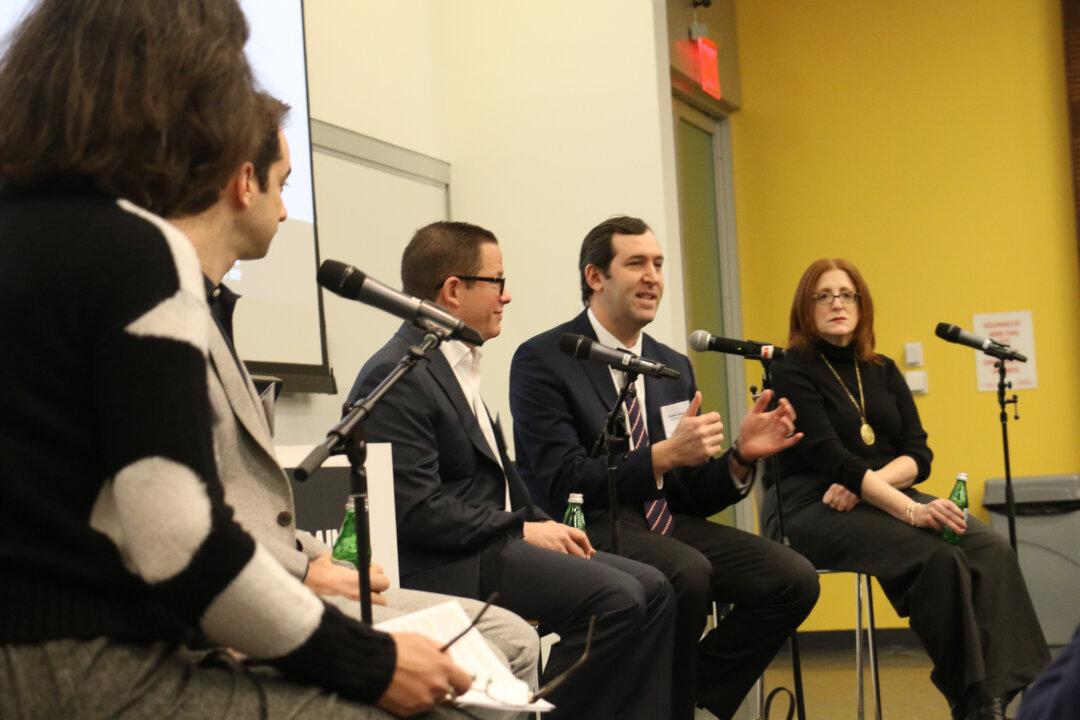NEW YORK—Hospitality representatives expressed their concern over New York City’s new paid sick leave law at a forum hosted by Crain’s New York Business on Thursday.
The new law, which goes into effect in April this year, ensures workers have at least five paid sick days off a year.
This has been a win for labor advocates, who cite concerns that low-income employees have to decide between their health and a full paycheck. This may also in turn affect other employees who have to work with sick coworkers, or children whose parents cannot take care of them when they are ill.
But for the hospitality industry, it poses a complex problem, and one that has to be dealt with with tact and planning.
“I suspect that at the end of the day more people will call out sick because they have actual time,” said Andrew Schnipper, CEO of Schnipper Restaurants. He predicts having to hire more staff to compensate, because as he puts it, “We have to cover the shift,” otherwise service will suffer.
Schnipper estimates this could cost him between $50,000 to $100,000 more a year, and that is just adding one more employee to one restaurant.
While Schnipper’s restaurants would be hurt by that kind of expense, the burden is proportionally bigger for smaller restaurants.
“You know, everyone wants to provide their employees sick leave and be able to do right by them. It’s good for business, it’s good for morale, but if you can’t afford something, you can’t afford something,” said Andrew Rigie, the executive director of the New York Hospitality Alliance.
Business owners say fines of all the other laws they are required to comply with already leave them in a pinch. But that is just one side of the battle. The other side is the amount of “legalese” they are required to know just to understand the laws.
“Not only do you need me as a lawyer or someone else as council, you need your HR team to basically have a legal degree and advanced human resource training to understand just all the city, state, and federal laws,” said Carolyn Richard the co-chair of Fox Rothchilds Hospitality Industry Practice.
When the laws are not well thought out, she said, even she cannot help. She complains about hasty legislation that leaves businesses and lawyers with too many gray areas and not enough answers.
Three months before it is set to go into effect, she is still waiting on the Department of Consumer Affairs to release the specifics of law. That leaves her and her clients with a lot of “what ifs” that will quickly need to be answered.
History
New York City Council was able to pass the first sick leave law last June despite former Mayor Bloomberg’s veto. That bill required businesses of 15 employees or more to pay them for at least five sick days a year by 2015. Businesses with 20 or more employees would have to start complying by April of this year.
Under Mayor de Blasio, that law has been reworked to include businesses with five or more employees, and the requirement for “sick leave” also extends to family members who are sick.
When it goes into effect in April, the law is expected to affect about 1.1 million employees.
Cost
New York City is already one of the most expensive cities in the country. Economists would reason that if restaurants were required to pay extra, that cost will eventually be passed onto the consumer, raising prices further.
“If we were to incur a $100,000 a year expense at the restaurant level, I can’t see any other way of paying for that without increasing prices somewhat,” said Schnipper. “We hate to raise prices but at the end of the day our business philosophy is we charge what we charge to make an appropriate profit, to be fair to the consumer.”
What an “appropriate profit” as compared with his employees wages and benefits is, he did not say.
Holly Kellum is a special correspondent in New York.
Correction: A previous version of the article misspelled Crain’s New York Business. Epoch Times regrets the error.





